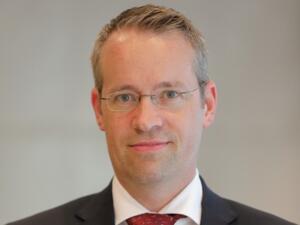Plans for Patent Mediation and Arbitration Centre take shape
Following the appointment of Aleš Zalar as director of the UPC's Patent Mediation and Arbitration Centre, further details have now emerged about how the Unified Patent Court envisions the centre.
26 September 2024 by Mathieu Klos
Peter Tochtermann is not only presiding judge of the local division Mannheim but also a member of the UPC Presidium. At the Munich IP Forum this week, organised by the recruitment agency Adamson & Partner, Tochtermann presented further details of how UPC officials envisage the Patent Mediation and Arbitration Centre, also known as PMAC.
Above all, it should operate independently of the UPC divisions, said Tochtermann at the conference. The PMAC will have its own budget and will be managed independently by Aleš Zalar. The PMAC director will only report to the presidium, according to Tochtermann.
No profit centre
There should be no influence or even exchange of information between the UPC divisions and the PMAC. Furthermore, the centre will not need to generate any profit, says Tochtermann.
- Peter Tochtermann
- Aleš Zalar
The further planning of the PMAC is now in the hands of Zalar, who took up his post as director in September 2024. Zalar has held the role of president of the European Centre for Dispute Resolution (ECDR) for twelve years, where he worked as a mediator, arbitrator, and consultant in international rule of law reforms.
Previously, Zalar was a judge and president of the District Court of Ljubljana. In addition, he was Minister of Justice in Slovenia from 2008 to 2012, and was Acting Minister of Home Affairs between 2011 and 2012.
New rules, new fees
According to Tochtermann, the next task is to draw up the Rules of Procedure for the new centre. Zalar’s other task will be to prepare his proposal for the centre’s fees. The Administrative Committee and the UPC Presidium must then approve both the rules and the fees.
A further task is to recruit suitable staff, including competent mediators. The centre will be based in Lisbon and Ljubljana.
Competition
The PMAC is the latest addition to the mediation space in Europe. There is already a similar institution affiliated with the WIPO, as well as national mediation and arbitration organisations.
Individual national courts, such as the Regional Court of Munich, have their own mediation procedures. The “SEP clearing house” for FRAND rates, which the EU Commission has considered introducing at the EUIPO as part of the planned SEP Regulation, also has strong features of a mediation centre. These institutions must compete for out-of-court procedures for settling patent disputes amicably.


